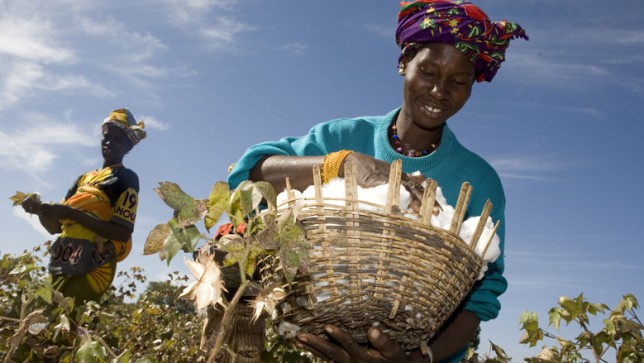The Alliance for Food Sovereignty in Africa (AFSA) is deeply concerned about the recent acquisitions by multi-national seed companies of large parts of SeedCo, one of Africa’s largest home-grown seed companies. Attracting foreign investment from the world’s largest seed companies, most of who got to their current dominant positions by devouring national seed companies and their competitors through mergers and acquisitions, is an inevitable consequence of the fierce drive to commercialise agriculture in Africa.

The deals in question involve French seed giant Groupe Limagrain, the largest seed and plant breeding company in the European Union, who has invested up to US$60 million for a 28% stake in SeedCo. In another transaction, SeedCo has agreed to sell 49% of its shares in Africa’s only cottonseed company, Quton, to Mahyco of India. Mahyco is 26% owned by Monsanto and has 50:50 joint venture with the gene-giant to sub-license its genetically modified (GM) bt cotton traits throughout India. Interestingly, Mahyco also specialises in hybrid cotton varieties, unlike Quton, who also produces open-pollinated varieties (OPVs) of cottonseed.
These acquisitions follow close on the heels of Swiss biotech giant Syngenta’s take-over in 2013 of Zambian seed company MRI Seed, whose maize germplasm collection was said at the time to be amongst Africa’s most comprehensive and diverse. Taken together, this means that four of the world’s largest biotechnology companies, Monsanto, DuPont, Syngenta and Limagrain all now have a significant foothold on the continent in markets for two of the three major global GM crop varieties: maize and cotton.
SeedCo, like so many other seed companies around the world, began life as a farmer-led and owned organisation to improve the availability of quality maize seed in 1940. Today it describes itself as Africa’s largest seed company, operating in 15 countries across the continent and has significant market shares in Malawi, Tanzania, Zambia and Zimbabwe. SeedCo also has access to government and donor-funded input subsidy programmes in Zambia and Malawi and has set its sights on potentially lucrative markets in Nigeria and Ghana. In July 2014, SeedCo and Limagrain began discussions with the International Maize and Wheat Improvement Centre (CIMMYT) for a collaborative research project on maize lethal necrosis in Africa.
The creation of an predominantly privately owned seed industry in Africa is a vital component of the Green Revolution push, which equates agrarian transformation in Africa with the adoption of commercial (corporate) certified seed and other expensive inputs such as fertilizer. The Alliance for a Green Revolution in Africa (AGRA), for example, claims to collaborate with 80 small and medium sized seed companies across Africa and has also organised public-private-partnerships between seed companies and public research institutions. How many of these newly established entities will remain independent of global seed industry players remains to be seen.
Multinational capture of local seed companies is a process that has long been underway in South Africa, a country much further down the Green Revolution path than any other in Sub-Saharan Africa. In 1999 and 2000 Monsanto purchased two of the country’s largest seed companies, Carnia and Sensako, and the Missouri based company now enjoys a dominant position in South Africa’s commercial seed market. In 2012 the largest domestic seed company, Pannar Seed, was taken-over by US firm Pioneer Hi-Bred, itself a subsidiary of the DuPont chemical company. The purchase not only gave Pioneer access to Pannar’s vast maize germplasm collection and agro-dealer network in South Africa, but also the company’s long established footprint in 23 other countries across the continent. Even the smaller South African companies are now seen as fair game, with Link Seed being taken over by, ironically, also Limagrain in 2013.
Apart from the concerns raised above, there are numerous worrying implications arising from these deals. What, for example, will be the implications of Mahyco’s (and thus Monsanto’s) involvement in the cotton seed sector in Africa through its SeedCo interests given their focus on hybrid and GM cotton seed, as opposed to SeedCo’s current focusonOPVs? Under what terms will Limagrain’s involvement in the proposed public private partnership with CIMMYT (and future project’s that its stake in SeedCo)inevitable bring? Monsanto’s involvement with public research bodies in Africa through the Water Efficient Maize for Africa (WEMA) project has been uncovered as bio-piracy instead of benevolence. Further, how will Limagrain benefit from SeedCo’s involvement in input subsidy schemes in Malawi and Zambia? From the outside this appears to be another case of scarce African agricultural budgets being used to subsidise the multinational seed industry.
AFSA believes that solutions to Africa’s agricultural challenges can be found in the collaboration between its small-scale farmers and public researchers, with the former taking the lead in setting the research agendas and objectives. A key part of public investments in R&D and extension should include identifying, prioritising and supporting work around participatory plant breeding, participatory variety selection, farmer-managed seed certification and quality assurance systems, identifying and supporting the development of locally important crops on the basis of decentralised participatory R&D, farmer to farmer exchanges and so forth. The encroachment of the international seed industry, which focuses almost exclusively on genetically uniform varieties, subject to UPOV 1991 style intellectual property protection, takes us further away from this agricultural vision and closer to neo-colonialism of Africa’s food systems.



















Dear Friends, I am presently translating your excellent and important article.
Take care a mistake in the text: “Taken together, this means that three of the world’s largest biotechnology companies, Monsanto, DuPont and Syngenta…”
You mean: “Taken together, this means that four of the world’s largest biotechnology companies, Monsanto, Dupont, Limagrain and Syngenta…”
Because Limagrain has been heavily involved in GM, for example in south-america, since 1985. I described all that in my book “Semences de Kokopelli”.
Love. Xochi